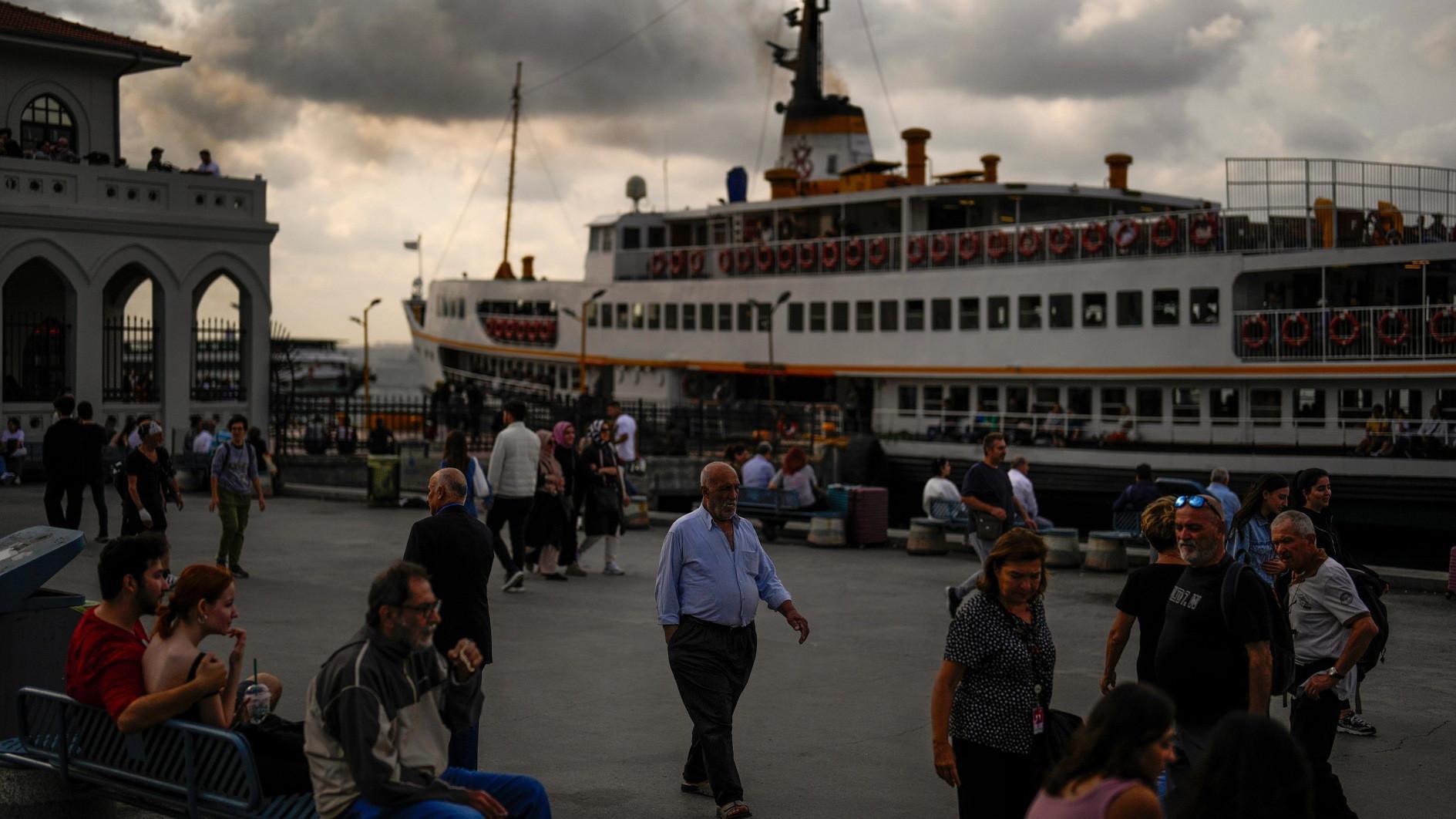
A student has formulated a comprehensive plan endorsed by the country's top scientific council to actively use the Marmara Sea for evacuation and relief efforts in the aftermath of a major earthquake.
Göktuğ Yıldız, a third-year student of Istanbul Technical University's Marine Transportation and Marine Engineering Department, emphasized the region hosting millions of people and top industrial and financial centers requires meticulous planning in advance, especially in terms of disaster management.
His project, titled the "Potential Marmara Earthquake Maritime Disaster Management," not only secured approval from the Scientific and Technological Research Council of Türkiye (TÜBİTAK) but was subsequently transformed into a book. The book delineated detailed scenarios on the immediate actions that maritime structures, vessels and personnel can undertake following a disaster.
"We focused on a system where UAVs and UCAVs would determine accessible routes during the disaster as we could not precisely predict what would happen during such a large-scale disaster. However, using the paths they indicate, floating docks can be established," Yıldız said.
According to calculations made in collaboration with the General Directorate of Coastal Safety, floating docks can be set up within three hours, he said, underscoring their crucial importance given the likelihood of ports becoming inoperative during earthquakes.
The project proposed the utilization of domestically produced military ships such as TCG Anadolu, TCG Bayraktar and TCG Sancaktar as makeshift hospitals, while also advocating the transportation of essential machinery for post-earthquake debris clearance using amphibious landing ships capable of reaching the shore.
‘Ports should be management bases’
Though some ports fall within the first-degree earthquake zone in fault maps by the country’s Disaster and Emergency Management Presidency (AFAD), authorities should use all usable ports as disaster management hubs.
He stated that based on calculations with Istanbul and Bursa urban sea transportation authorities, maritime vessels owned by transportation companies could transport approximately 150,000 people in a single trip.
"This transport can be directed to assembly points or to a secure location outside the city after the quake," Yıldız added.
Yıldız asserted that every detail of post-earthquake actions should be meticulously planned in advance.
"In the event of a possible earthquake, maritime routes will be a lifeline for Istanbul. However, this is not a task to be postponed. Solid preparation must be made beforehand," he said.
"A detailed plan is required for every stage of disaster management via maritime routes. Taking an integrated approach to disaster management is crucial,” he added.
Meanwhile, Environment, Urbanization and Climate Change Minister Mehmet Özhaseki said that he will unveil a major earthquake project for Istanbul on Dec. 23.